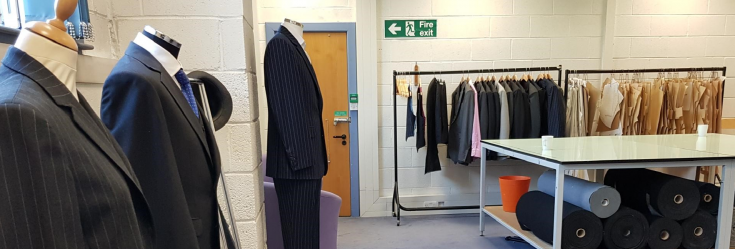Circular economy in textiles and clothing: policy recommendations

On 28 and 29 September 2021, the Interreg Europe Policy Learning Platform held an online peer review for the Region of Central Macedonia (in Greece) on ‘Circular Economy in textiles and clothing'.
A detailed list of challenges and recommendations can be found in the follow-up report.
The Region of Central Macedonia (RCM) wanted to convene with European experts and its regional stakeholders to discuss circular economy in textile and clothing, and how to increase sustainability and competitiveness for this key regional industry. The Regional Development Fund of Central Macedonia (RDFCM) on behalf of RCM, was interested in hosting the peer review not only because the sector of “textile and clothing” is one of the champion sectors in Central Macedonia according to the RIS3 Strategy but also to plan the publication of calls in the programming period 2021-2027 that are enhancing SMEs competitiveness by integrating new technologies in innovative or high added-value products, processes or services and resource efficiency.
In light of this, the Region of Central Macedonia decided to use an Interreg Europe peer review to tackle several policy challenges and obtain peer expert input on state-of-the-art tools and experiences related to the circular economy in textiles and clothing aiming:
- To increase sustainability and implement the circular economy in the regional textiles and clothing sector discovering policy measures and programmes aiming at waste reduction and avoidance as well as increased resource efficiency through innovative processes in textiles and clothing; awareness-raising actions and campaigns that increase consumers and producers support for circularity.
- To enhance the competitiveness of the regional textiles and clothing sector through policy actions and funds that boost investments for a circular and resource efficient textiles / clothing sector; solutions to leverage increased funding through PPP collaboration, steer innovation and foster collaboration among SMEs.
Peers from across Europe
Alongside Katharina Krell and Astrid Severin, our low carbon economy and environment and resource efficiency Thematic Experts, four excellent peers were invited, and participated in the peer review:
- David Allo, Texfor, Spain
- Roberto Vanucci, Centrocot, Italy
- Lucyna Bilinska, Textile Plant Bilinska, Poland
- Carmen Madalina Cozma, Ministry of Environment, Waters and Forests, Romania
The experts came together to share their experience and to provide recommendations for ways of tackling Central Macedonia’s challenges related to circularity in textiles and clothing. They provided the host with valuable insight, know-how and practical suggestions for solving the challenges presented above.
Recommendations
The peers recommended to launch a survey that feeds into the development of a strategy and action plan for a sustainable and competitive textiles and clothing sector in Central Macedonia. They also underlined the need to proactively help SMEs and other regional players (R&D centres, companies, etc.) to access sources of funding and to participate in research aiming to improve recycling and waste management of textiles.
The use of the existing voucher schemes to support textiles and clothing SMEs with innovation and technology vouchers was explored and new ways to ensure better absorption of the vouchers by textile SMEs for example through specific promotion schemes were examined. The peers also suggested the use of energy efficient equipment and of renewable energy in the industry; recommended technologies for circular wastewater management e.g. for dyers; drip irrigation for cotton farmers as well as strategies for the disposal of textiles waste. In addition, practical steps to improve the communication strategy of Central Macedonia were discussed e.g. through the development and promotion of a regional brand for ‘Made green in Central Macedonia’ and many opportunities for future cooperation were identified.
The host’s policy challenges, and all the peer suggestions can be found in the follow-up report.
The host used the peer review to involve local stakeholders in a very lively discussion and has assessed the recommendations received from the peers to see how they could inform the decision-making process on the circular future of the textiles and clothing sector in Central Macedonia.
Pleased with the outcome of two full days of intense talks moderated by the Policy Learning Platform, Konstantinos Gioutikas, Vice Governor of Development and Environment of the Region of Central Macedonia, commented: “As a regional authority, one of our main strategies is to promote the extroversion and internationalisation of our businesses, to give to them tools that increase their competitiveness and to enter into global value chains. This fruitful peer review has succeeded in introducing to the Region of Central Macedonia state-of-the-art tools and experiences to increase competitiveness, sustainability and implement the circular economy in one of the champion sectors of our region, the textile and clothing sector. We warmly recommend it to all of those that are looking for inspiration and new ideas for their regional policies!”
Photo credit: RESET
2021-09-28 Central Macedonia
Follow-up report of the peer review in Central Macedonia
